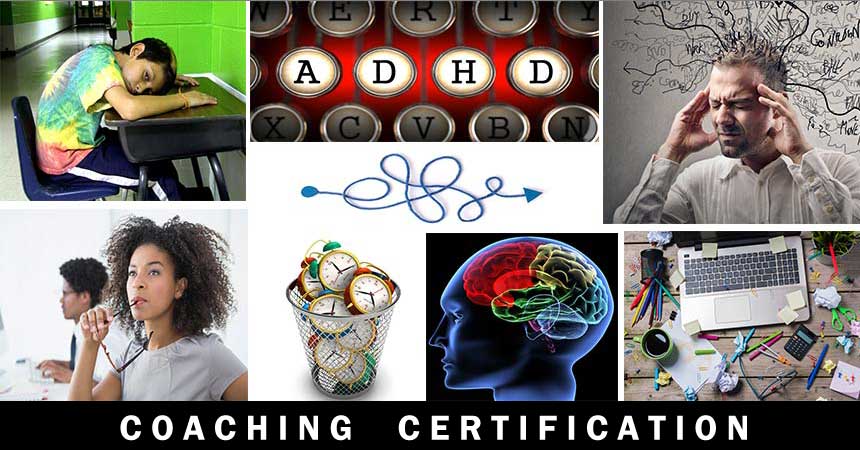Index:
Section 1—What is ADHD Coaching?
Section 2—Education and Training for ADHD Coaches
Section 3—National Certification for ADHD Coaches
Section 4—How to Become a Certified ADHD Coach
Section 5—Our Three Extraordinary ADHD Coaching Master Classes
Section 6—The Dean of Our ADHD Coach Certification Program–Alan R. Graham, Ph.D., PCC, MCAC
Section 7—Hear Alan Graham Talk About Our ADHD Coach Certification Program


 ADHD is a neurological condition that affects children, adolescents, and adults, causing them to have a wide array of differences and challenges compared to neurotypical individuals. Those with ADHD may face difficulties in school or at work; problems with impulsivity and discipline; hyperactivity (primarily in childhood); trouble organizing their time, tasks, and environments; exceptional struggles with procrastination and distraction; deficits in setting priorities and following through; difficulties with social situations and relationships; and a variety of substance abuse issues, including alcohol, drug or food addictions.
ADHD is a neurological condition that affects children, adolescents, and adults, causing them to have a wide array of differences and challenges compared to neurotypical individuals. Those with ADHD may face difficulties in school or at work; problems with impulsivity and discipline; hyperactivity (primarily in childhood); trouble organizing their time, tasks, and environments; exceptional struggles with procrastination and distraction; deficits in setting priorities and following through; difficulties with social situations and relationships; and a variety of substance abuse issues, including alcohol, drug or food addictions. ADHD Coaching requires a unique set of skills that are not taught in traditional coach training programs. An ADHD Coach works with individuals who feel or think they may have (or know they have) ADHD or ADHD-like qualities. ADHD Coaches may also work with persons who do not have the disorder themselves but must deal with ADHD in someone they’re living with, related to (e.g., a spouse or child), or working with (e.g., a business partner or colleague).
ADHD Coaching requires a unique set of skills that are not taught in traditional coach training programs. An ADHD Coach works with individuals who feel or think they may have (or know they have) ADHD or ADHD-like qualities. ADHD Coaches may also work with persons who do not have the disorder themselves but must deal with ADHD in someone they’re living with, related to (e.g., a spouse or child), or working with (e.g., a business partner or colleague).


 Alan Graham, PhD—a therapist, coach, educator, author, and presenter—has over two decades of experience helping thousands of ADHD children, adolescents, adults, and their families navigate life’s challenges and gain the tools needed to manage emotional issues.
Alan Graham, PhD—a therapist, coach, educator, author, and presenter—has over two decades of experience helping thousands of ADHD children, adolescents, adults, and their families navigate life’s challenges and gain the tools needed to manage emotional issues.